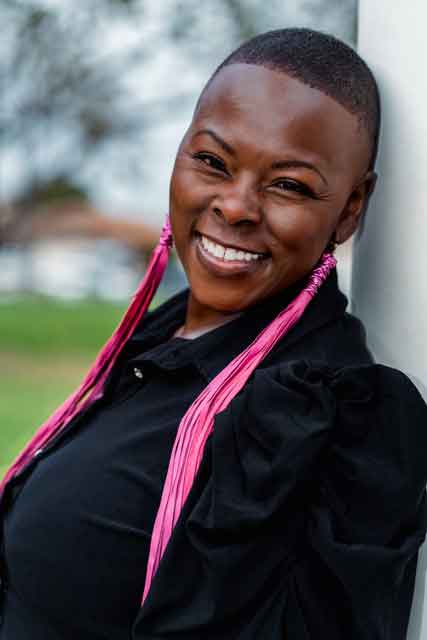Equity, Empowerment and Action: Combating STI’s In Our Communities
Let’s talk about something real. In our community, sexual health is about love, respect and trust, not just health. However, all too often, Black men and women are navigating relationships where their health takes a back seat to the expectations or desires of their partners.

By Kara James
Let’s talk about something real. In our community, sexual health is about love, respect and trust, not just health. However, all too often, Black men and women are navigating relationships where their health takes a back seat to the expectations or desires of their partners.
How many times have we heard it? “Why do we still need condoms? Don’t you trust me?” Or “It’s been six months—why are you still asking for protection?” For so many of us, these questions become moments of pressure, confusion, and even guilt. We’re taught that love means sacrifice, but love should never mean sacrificing your health.
Here’s the truth: when we stop using condoms, we need to make sure we’re doing it with clarity and intention, not because we are afraid of being rejected or under pressure from a partner. If you’re thinking about not using condoms in a relationship, you owe it to yourself to get tested—and ask your partner to do the same. Protecting your health is an act of love for yourself and for your future, not a sign of mistrust.
In Los Angeles County, the statistics tell a powerful and urgent story. According to the Department of Public Health:
- The chlamydia rate is 583 cases per 100,000 people, with young adults and communities of color being most affected.
- Gonorrhea cases have doubled over the last ten years, with infection rates rising significantly among Black communities.
- The rise in syphilis, particularly among pregnant women and newborns, is a devastating trend that demands immediate attention.
These aren’t just public health issues—they are reflections of the inequities in our healthcare system. They highlight the obstacles that make it harder for Black and Brown communities to get the care we need and deserve. But they also point to the urgent need for action: action in clinics, in relationships, and in our discussions about health and safety.
As a Black woman and nurse practitioner, I’ve heard numerous stories from men and women in our community. Stories of being unprepared for tough conversations about sexual health. Stories of being humiliated or shamed for wanting to protect themselves. Stories of being told to just “trust” their partner, only to end up with devastating diagnoses that could have been avoided.
Let me be clear: your body is yours. Your health is yours. And you have every right to demand that it’s handled with care and respect.
Getting tested is a moment of empowerment, not just a box to check. It’s saying, “I love myself enough to know the truth about my health.” And asking your partner to get tested too? That’s not mistrust. That’s mutual respect. A partner who truly cherishes and values you will not only understand—they’ll appreciate that you care about both of your futures.
As we approach Valentine’s Day, a holiday centered around love and connection, let’s redefine what love looks like in our communities. True love isn’t just about flowers, candy, or grand gestures—it’s about respect, trust, and care for one another’s well-being. This February let’s celebrate love in its healthiest form: a love that prioritizes your health and the health of those you care about.
It’s time to reclaim our voices in this conversation. Let’s normalize testing—not as a response to fear but as a celebration of self-love and responsibility. Let’s stop allowing anyone, no matter how much we care about them, to make us feel ashamed for protecting ourselves.
At Planned Parenthood Los Angeles, we’re here to stand with you. We’re here to provide testing, treatment, and the information you need to make the best decisions for your health and your life. For over six decades, we’ve served this community with unwavering commitment—and we’re not stopping now.
But this work doesn’t end in the clinic. It starts with us, holding ourselves and our partners responsible. It starts with honest conversations, even when they’re uncomfortable. It starts with knowing our value and refusing to settle for anything less than love that uplifts and protects us.
So, I challenge you: Take control of your health. Get tested. Talk openly with your partner. Protect your future and know that you are worth every ounce of care and respect you demand.
Our community deserves better. You deserve better. Let’s claim it—together.
To learn more about health services offered through Planned Parenthood Los Angeles’ Black Health Initiative, visit https://www.plannedparenthood.org/planned-parenthood-los-angeles/black-health-initiative.
—
Kara James, a Nurse Practitioner at Planned Parenthood Los Angeles since 2015, champions racial equity and anti-racism in her clinical care. In 2020, she spearheaded the launch of the Black Health Initiative to enhance holistic well-being in Los Angeles’ Black communities.









